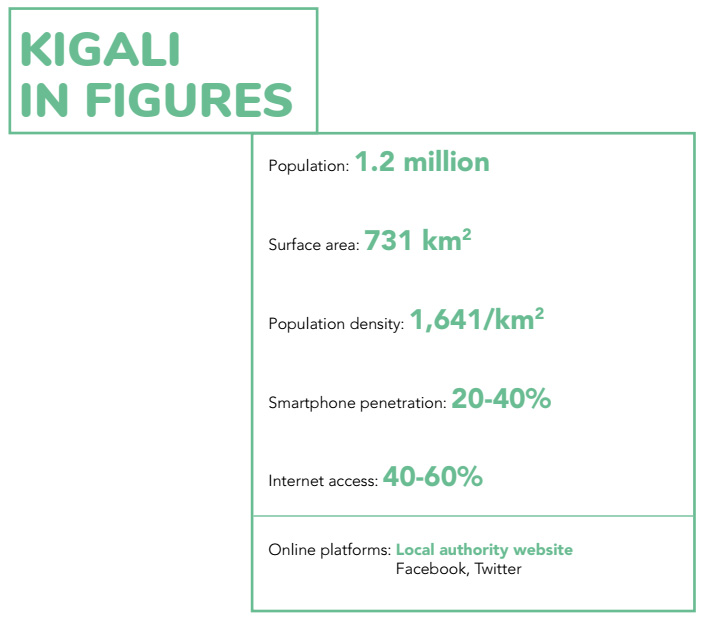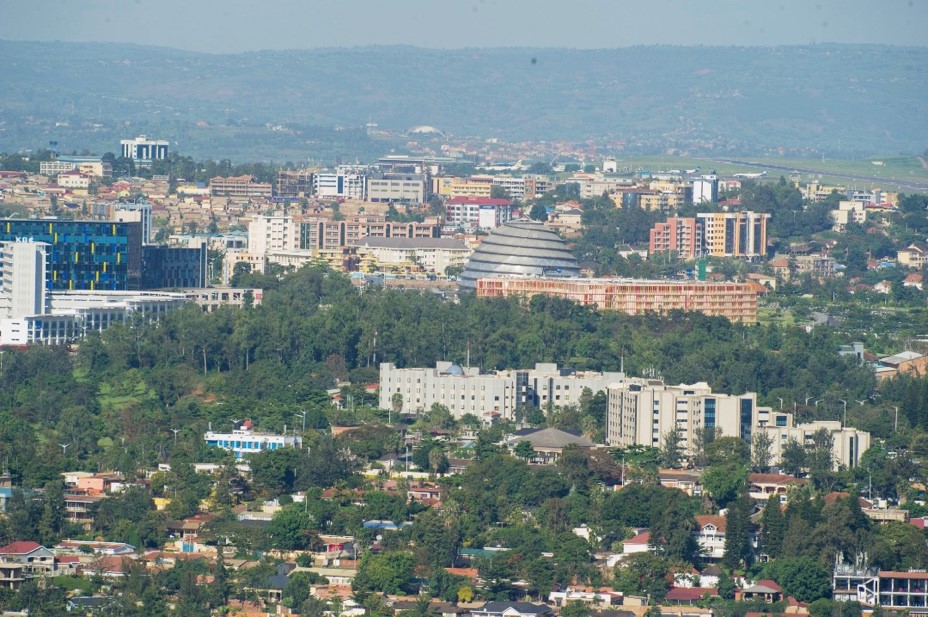Introduction
This section is the city profile for Kigali. The profile attempts to present the most important information about Kigali and the ASToN project, drawing on information gathered through a questionnaire and 3-day city visit, supplemented by a concept note provided by the Kigali team. Over the course of the city visit, the ASToN team facilitated workshops with the City of Kigali (CoK) to understand their ambitions and concerns for the project.

About the city
 Kigali is the capital and largest city in Rwanda, lying in a region of rolling hills and valleys between the mountains of Mount Kigali and Mount Jalli. Kigali is currently experiencing a period of sustained economic growth, with GDP in the city growing by approximately 6.5% a year over the last decade. Such sustained economic growth has seen improvements to quality of life alongside an ambition to be more ecologically sustainable. The city is also attempting to be one of Africa’s most prominent technology hubs, and has in recent years introduced digital infrastructure and a range of services to position itself as one of the continent’s most digital local authorities. Key challenges for the city include resilience, digital privacy, and social inclusion.
Kigali is the capital and largest city in Rwanda, lying in a region of rolling hills and valleys between the mountains of Mount Kigali and Mount Jalli. Kigali is currently experiencing a period of sustained economic growth, with GDP in the city growing by approximately 6.5% a year over the last decade. Such sustained economic growth has seen improvements to quality of life alongside an ambition to be more ecologically sustainable. The city is also attempting to be one of Africa’s most prominent technology hubs, and has in recent years introduced digital infrastructure and a range of services to position itself as one of the continent’s most digital local authorities. Key challenges for the city include resilience, digital privacy, and social inclusion.
About the ASToN member
The ASToN Member is the City of Kigali (CoK), of which the city’s urban area covers about 70% of its boundaries. The CoK produces guidelines and conducts the coordination and planning of the city. Its goal is for Kigali to be a city with a vibrant and diverse economy, green transport, affordable homes, flourishing nature and biodiversity, sustainable resource management, and with an endearing character and unique local identity.
The City of Kigali introduced the Smart Kigali Initiative to improve citizen services and help digitalise public services. It follows multiple other national strategies that have framed action within the city, which include the Rwanda Smart City Framework – from which the SMART Rwanda Master Plan (2016-2020, just extended to 2024) builds on previous national ICT strategies. The master plan looks to achieve three primary goals: economic transformation, job creation and accountable governance, through the concept of the smart city.
There is also a national-level Future Tech Exploration led by the Ministry, which shapes local plans and is looking at how frontier technologies can accelerate progress in Rwanda.
The ICT Hub Strategic Plan (2019-2024) addresses the question of how Rwanda can become a technology hub in Africa, one that has a culture of innovation, research and development, and attracts high-level skills and strong investment. Finally, the ICT Sector Strategic Plan (2018-2024) concerns how Rwanda can help build the ICT sector within the country.


